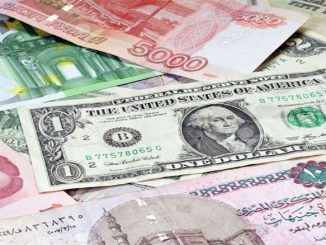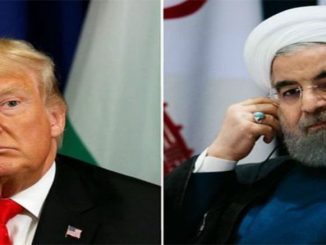
Despite plans to sell shares in some firms, the military will retain control of much of the economy. Anyway, “Egypt’s military companies aren’t going anywhere” according to a Bloomberg column.
After several years of aggressive expansion by military-owned businesses, Egyptian officials say change is on the way. The country’s new sovereign wealth fund is preparing a number of these companies to sell equity to private investors and potentially shares on the Egyptian Stock Exchange. The fund reportedly intends to invest in the companies itself.
Minister of Planning Hala El-Saeed has said the sale of military companies would mark a “historic shift in how Egypt’s economy is structured.” But the shift may be less dramatic than advertised. The ultimate result could be to deepen the private sector’s dependence on government-led growth, extending the trend of the past several years.
That isn’t to say no change is coming. In order to sell any equity, the military will have to publish valuations of the companies concerned. Historically, the financial affairs of the military and its businesses have been off limits to the public, on grounds that their disclosure risked national security. The argument that the finances of fish-processing plants and macaroni factories are sensitive state secrets will have to be dropped in order for any investments to move forward.
How much is disclosed remains to be seen, though. Although public disclosures are required in order to sells stocks on the exchange, the military has a tendency to carve out exceptions to rules for itself and its businesses. If it does the same in the EGX, that would compromise the integrity of the exchange.
But it appears that the military has concluded that some degree of transparency is tolerable in exchange for access to capital through the sale of equity. This may be the primary motive behind this latest evolution in the state-led growth that has been a hallmark of President Abdel-Fattah El-Sisi’s government. The National Service Products Organization, which is affiliated to the defense ministry, will able to raise capital through the private market to fuel its investments and expansion, rather than relying on its cash flow and loans from state banks.
El-Saeed has made it clear the state is not exiting the market. It is inviting the private sector to invest with it. Ayman Soliman, CEO of the sovereign wealth fund, has explained that the offerings are “structured around public-private partnerships versus just privatization.”
In any event, “privatization” would not guarantee an end to the interventions of politically connected firms. Under the presidency of Hosni Mubarak, ruling elites regularly captured privatized firms through privileged access. The buyers were expected to contribute to the ruling party as well as presidential initiatives and campaigns. The finances of military firms are inaccessible even to state auditors and their profits do not flow to state coffers, but remain strictly at the disposal of the military. Unlike conventional state-owned enterprises they are also capable of more coercion in competing with private-sector actors.
This new effort to raise capital through private investments is an elaboration of the political economy of the Sisi government that has been taking shape since the coup in 2013. The growth sectors of Egypt’s economy have a large presence of military-owned enterprises.
Government stimulus devoted to megaprojects and large infrastructure development has driven growth in recent years. Contracts for these projects are often channeled to military-owned companies without competitive tenders. The military companies then subcontract much of the work to private companies. This empowers the military to decide the winners and losers in the private sector and ensure their dependence on the government for access to state spending.
The sale in equity will give the military access to privately held wealth that has few alternative destinations. Due to unfavorable investment conditions, much of the country’s private wealth is tied up in property investments and high-interest bank deposits. The array of formal anti-competitive advantages enjoyed by state-owned enterprises, coupled with their aggressive expansion, has contributed to the contraction of the private sector.
Many in Egypt’s business community have been understandably reticent about competing directly with military companies. Now the military may have found a way to access their parked capital and further intertwine their interests. The goal is not simply to accumulate wealth, but rather to control how and by whom wealth is accumulated.
Not only does control over the production and distribution of wealth allow the government to buy loyalty, it also prevents the emergence of any competition. If Egypt were to transition to a private-sector led economy — as repeated IMF bailouts were meant to facilitate — then private companies would be able to produce and distribute wealth independently. As a number of independent reports have shown, aggressive interventions in the economy by state-owned companies have deterred domestic and foreign investment and led to the contraction of the private sector.
*By: Timothy Kaldas, an independent risk adviser and nonresident fellow at the Tahrir Institute for Middle East Policy. (The article was first published in Bloomberg on 24 Dec. 2020.)



